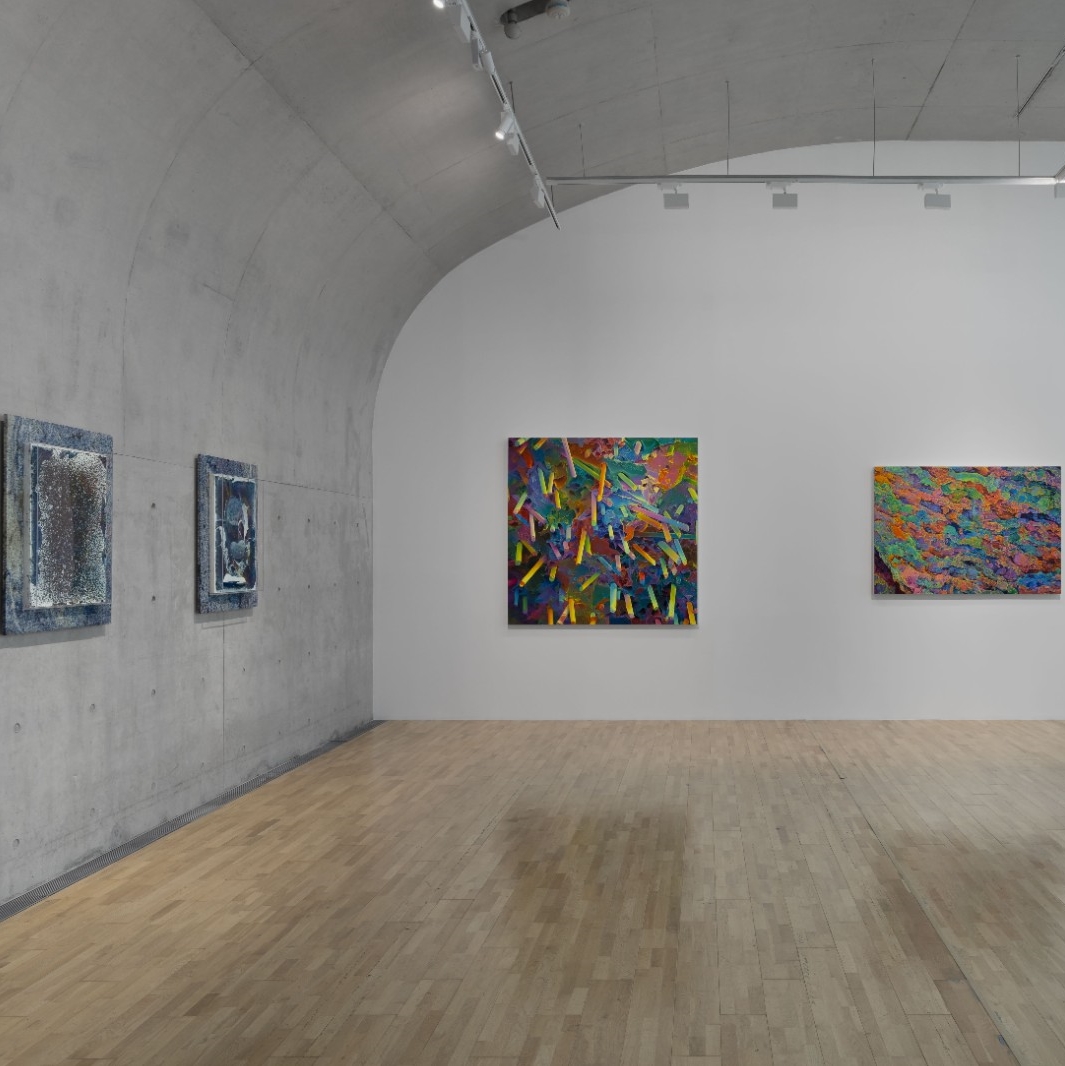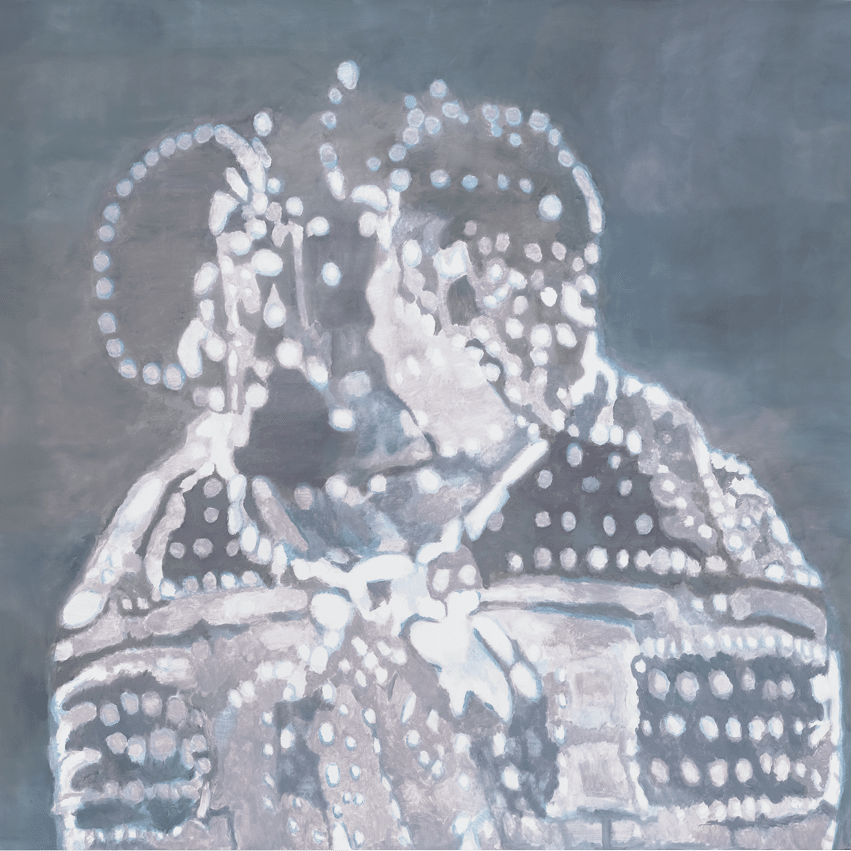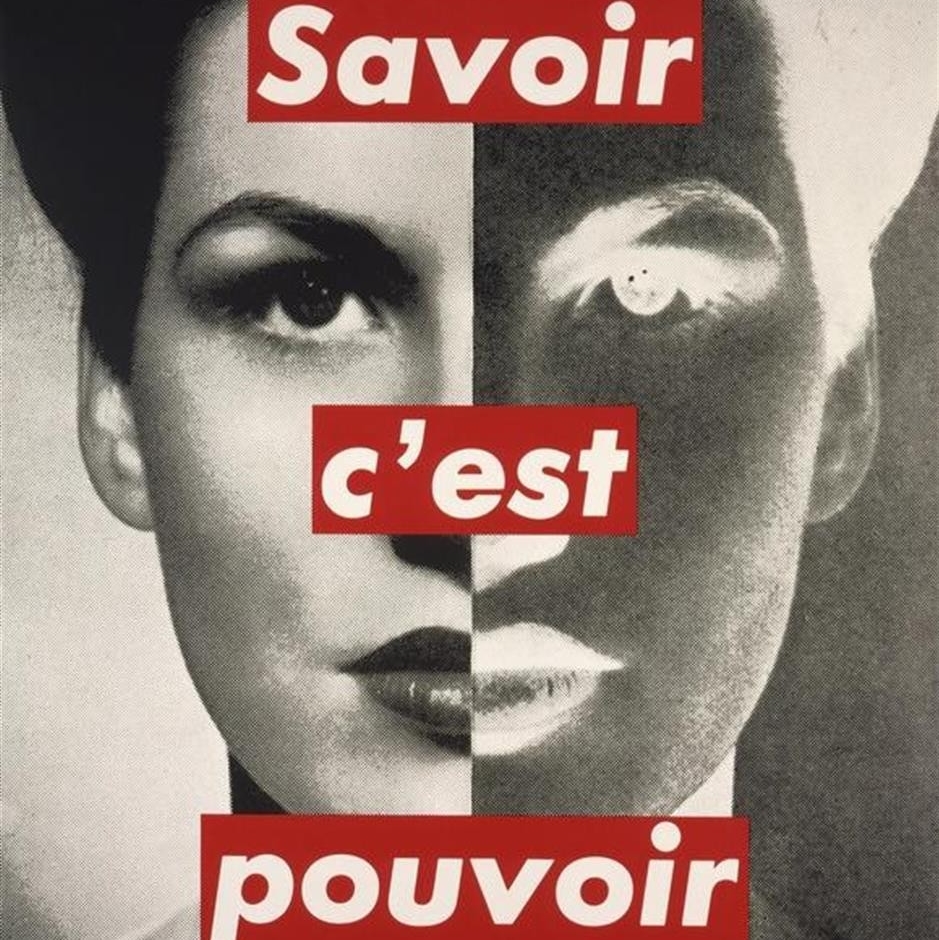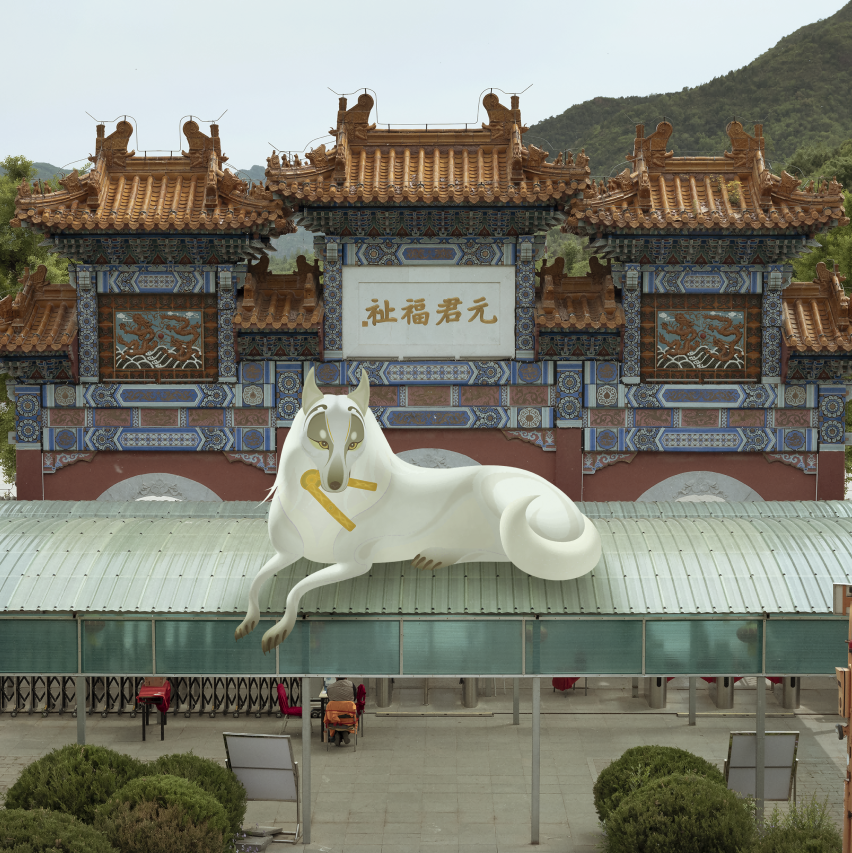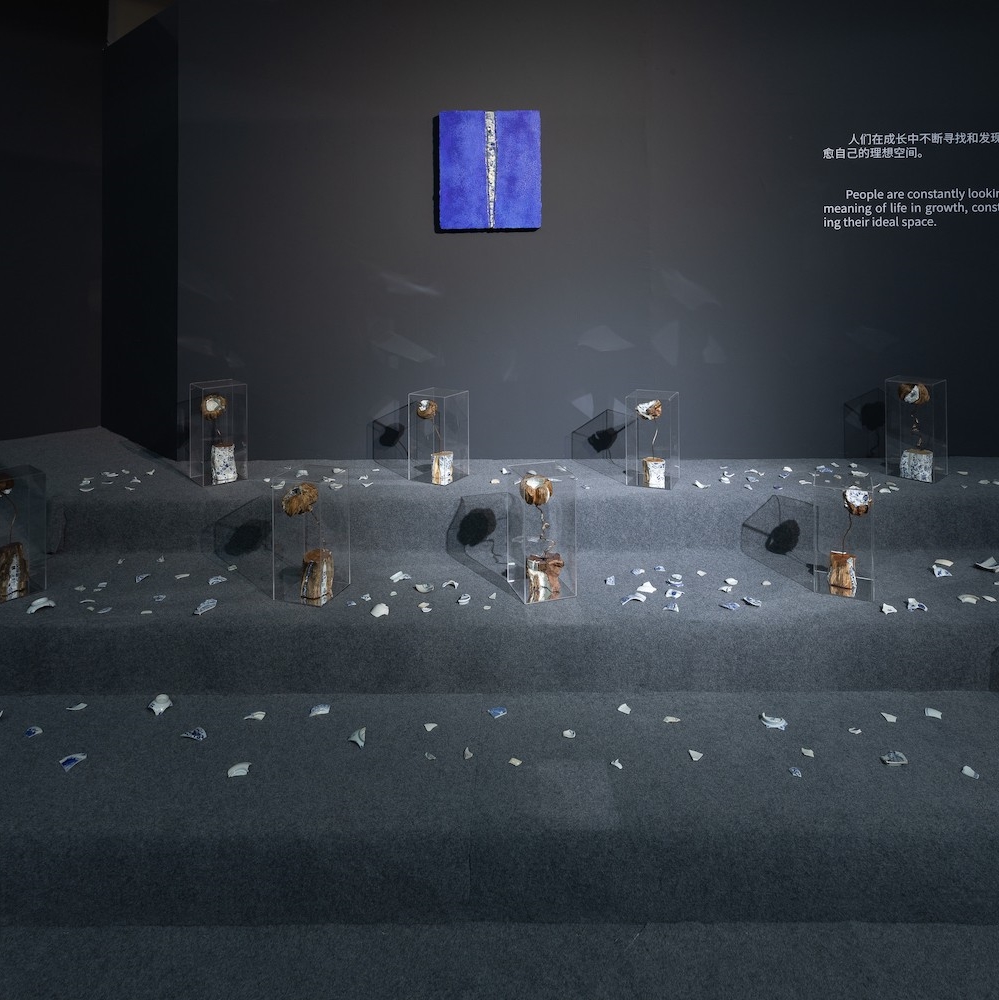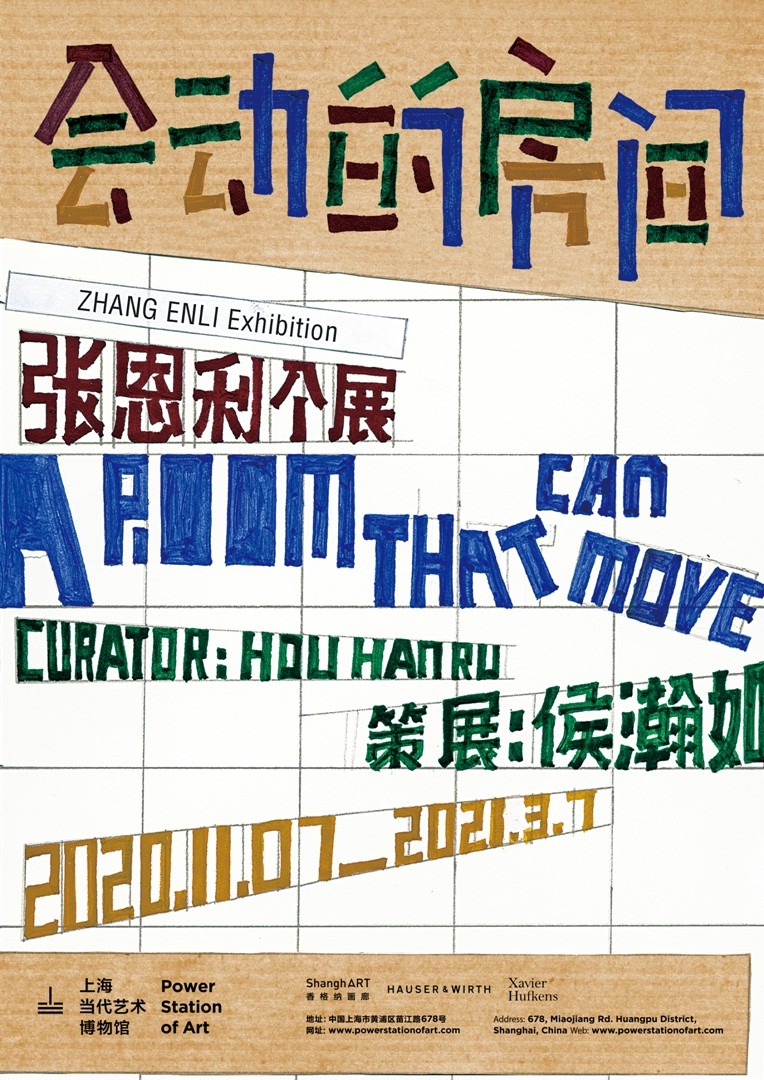
From November 7, 2020, to March 7, 2021, the Power Station of Art (PSA) is hosting Zhang Enli: A Room That Can Move, the largest and most comprehensive solo exhibition to date by Chinese artist Zhang Enli. Curated by Hou Hanru, the retrospective will present more than one hundred paintings spanning various stages of the artist’s 30-year career, as well as a number of his newly commissioned immersive painting installations (known as “Space Paintings”) for PSA.
The exhibition occupies the third and fifth floors of PSA and its outdoor deck, tracing Zhang Enli’s unceasing efforts in his adventurous painting path since the early 1990s through a non-linear curatorial approach. Zhang Enli’s paintings can be roughly divided into three parts: figurative paintings in the 1990s that focused on ordinary people and issues of their lives; still-life paintings after the millennium, mainly depicting “containers” that trace that passage of time; and more recently, abstract paintings that record memory and explore the subconscious. Since 2007, his “Space Painting” series has mobilized the viewer’s bodily experience amidst the symphony of time and space, thus stimulating the potential initiatives of painting, the oldest traditional medium, and pulling it in a new direction.
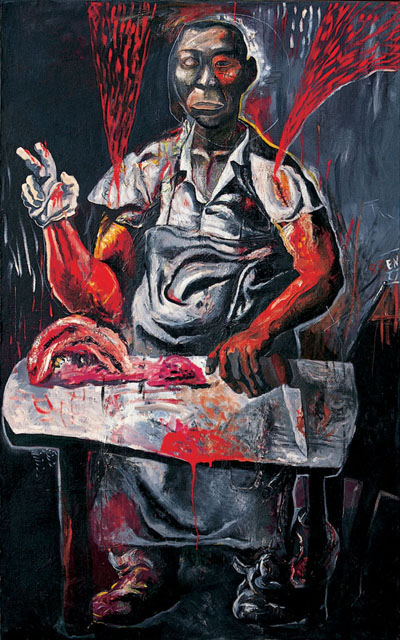
Zhang Enli, Two Jin of Beef, 1993, Oil on Canvas, 158 x 98 cm. Courtesy of the artist.
“Most of the time, we are all meat on the table.”
Zhang Enli was born in Jilin Province, China, in 1965. He studied calligraphy and traditional Chinese ink painting during childhood, which is seen to shape his brushstrokes on the canvas, while memories of growing up in the Northeastern grasslands have also sprung up in his paintings. In the late 90s, Zhang Enli moved to Shanghai after graduating from university. The city dwellers and their daily lives grabbed his attention, and thus, he brought these social landscapes to the canvas, depicting violence and tension under the rapid urban development of the times. In the Two Jin of Beef and Old Butcher series, Zhang Enli paints portraits of people in everyday life struggling with numbness in gloomy tones and turbulent brushstrokes. In the Pub, Eating, and Intimacy series, Zhang Enli captures people’s social state and psychological transformation in the wake of sudden economic prosperity. Beneath the dramatic tables, the tension-filled narratives, and the emotionally charged faces, there emerges the complex and intertwined human nature of that era.
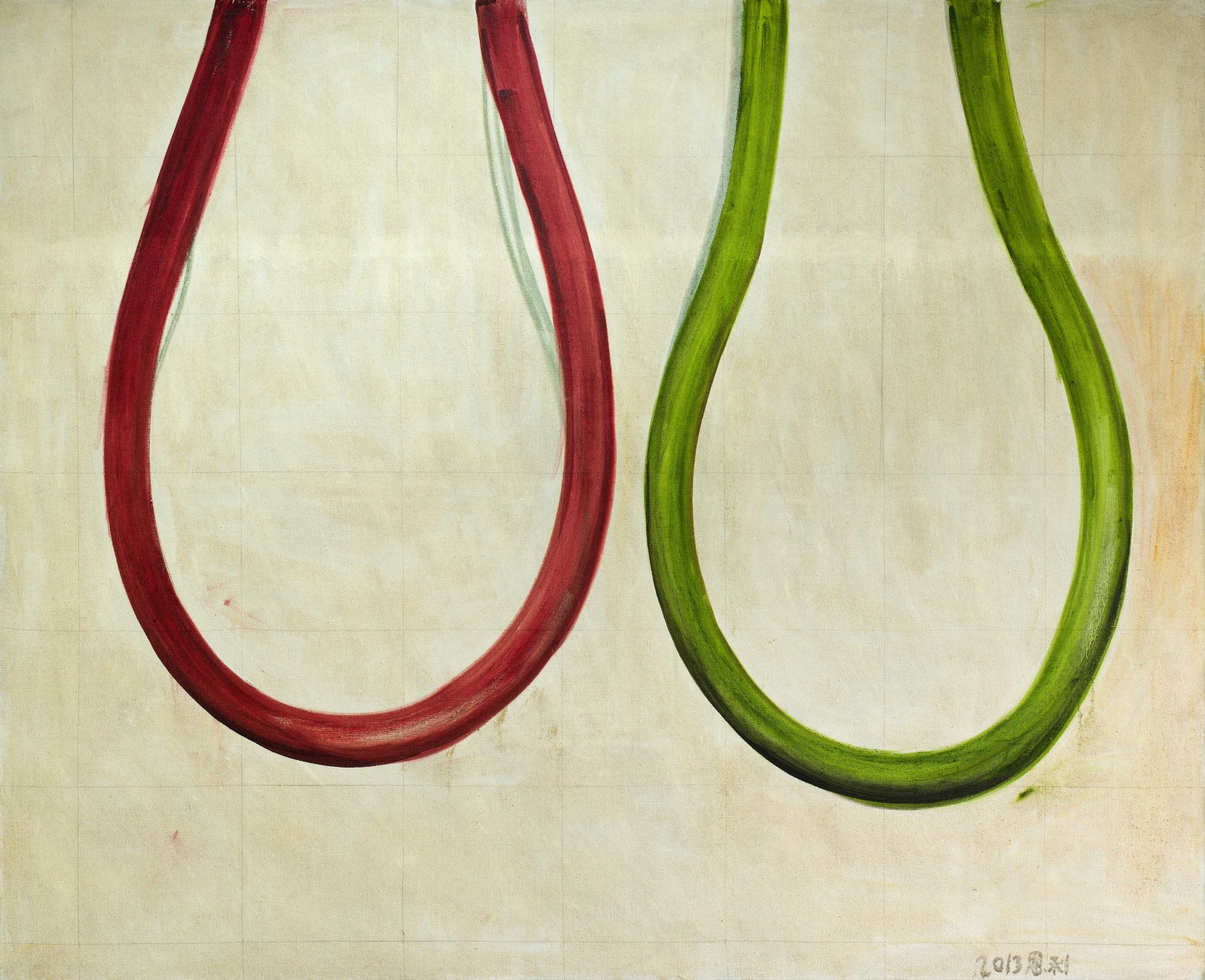
Zhang Enli, Red Pipe & Green Pipe, 2013, Oil on Canvas, 250 x 300 cm. Courtesy of the artist.
“Watching it is like looking in a mirror, from which you recognize yourself.”
Since 2000, Zhang Enli has gradually developed interests in quotidian objects. This move is rather a freer expansion of his past portraiture to observe the consistent variations of people, society, and the era from another perspective. He often works in thin washes of oil paints, endowing still life with subtle textures and weighty senses of power. His choice of “objects” sometimes comes from everyday life, sometimes from his growth trajectory. The leather pipes represent the codes of city, while the balls are reminiscent of childhood, and the containers, mainly cardboard boxes, are extracted from the subconscious and memory. “Containers” dominate the works of this period. Cardboard boxes, buckets, and utensils are objects that are readily available and frequently used in people’s lives, recording all traces of consumption, survival, and memory. They resemble a mirror; a reflection of people’s identities. Through the subject-object shifting, people soon develop an unfathomable sense of emptiness and addiction. In this way, painting finally comes into reality.
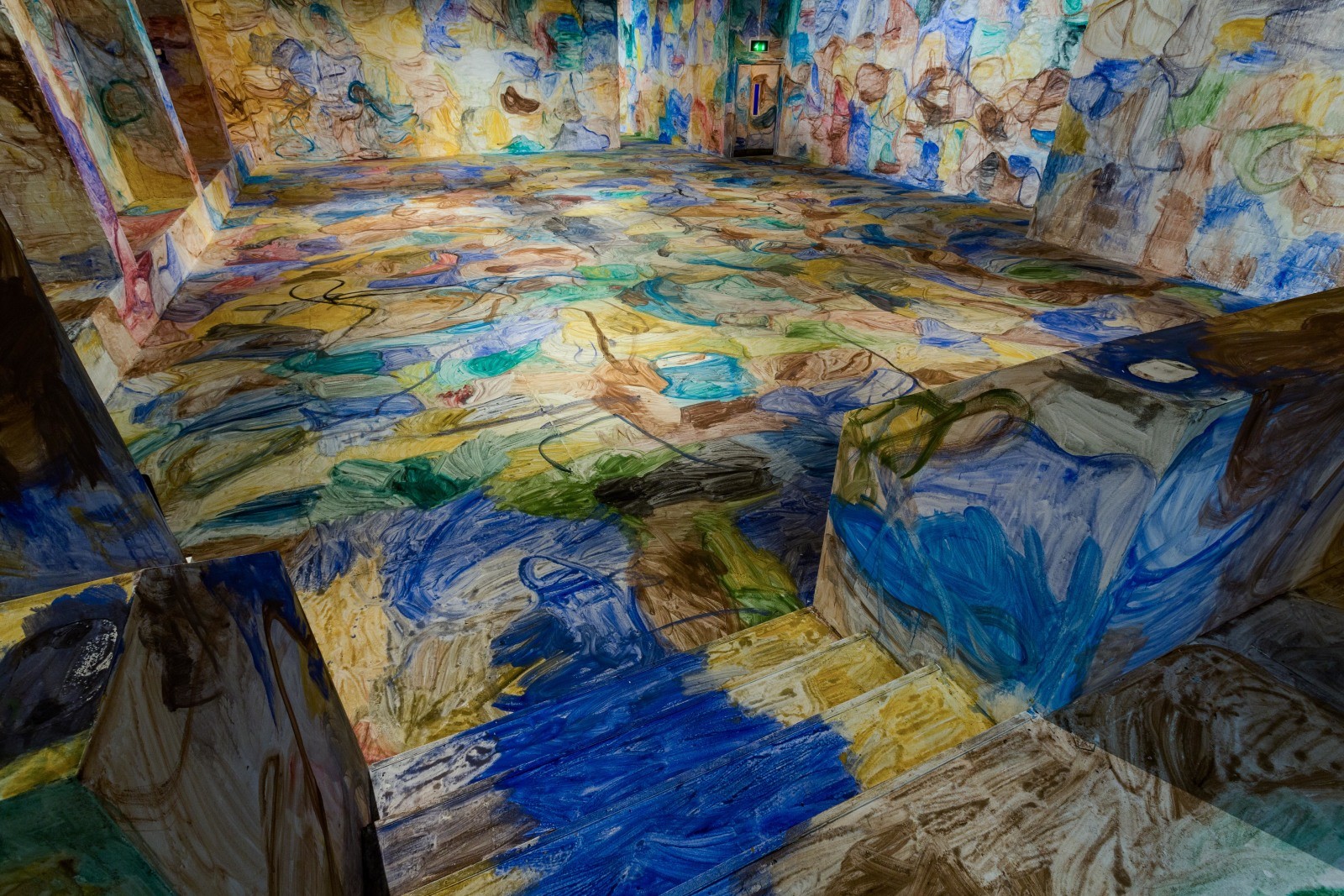
Space Painting, Zhang Enli, Installation view at Institute of Contemporary Arts, London, 2013. Photo by Mark Blower.
“Why not just paint on the wall?”
The primary purpose of Zhang Enli’s painting practice was to transform everyday objects’ physicality into the materiality of painting. Faced with the mainstream trend of “grand themes” and “technological spectacles,” Zhang Enli decided to abandon the refinement and tedium brought about by an overly mature painting technique and instead shifted his focus to the rudimentary state of life. With direct and swift brushstrokes, he interpreted this gaze by picturing simplicity and authenticity. This need for immediacy drove him to paint directly on to walls, more or less echoing the “primitive style” of ancient frescoes. Since then, these paintings have developed into the “Space Painting” series. In “Space Painting” projects such as the Kochi-Muziris Biennale in India, The Institute of Contemporary Arts in London, Villa Croce in Genoa, and Galleria Borghese in Rome, he has freed himself from the limitations of the frame and painted directly on the walls as well as architectural components of the site. His painting incorporates as well as resists the wall as an overwhelming intervention in space. Sometimes the artist uses hundreds and thousands of cardboard boxes to form a private space, where he can paint spontaneously. In this exhibition, Zhang Enli’s “Space Paintings” will experiment with larger scale and newer materials, presenting visually shifting images to suggest the concept of the show, or the potentiality of moving the room by painting as an action. In this scene, the viewer’s gaze will be transformed into an embodied experience with inner emotions, from which one can genuinely explore the secret of A Room That Can Move.
About the artist
Zhang Enli is a renowned Chinese contemporary artist, born in Jilin Province in 1965. He graduated from the Arts & Design Institute of Wuxi Technical University, China in 1989, and taught at the Arts and Design Institute of Donghua University. Now he lives and works in Shanghai. Zhang Enli’s works have been frequently displayed in major art institutions around the world, including solo shows at Galleria Borghese, Rome, Italy (2019), Firstsite, Colchester, UK (2018), The Institute of Contemporary Arts, London, UK (2013), the Shanghai Art Museum, China (2011), and the Kunsthalle Bern, Switzerland (2009), as well as group shows at the Fondazione Prada, Milan, Italy (2018), Museum of Contemporary Art, Antwerp, Belgium (2018), Centre Georges Pompidou, Paris, France (2016), Contemporary Art Museum PAC Milan, Italy (2015), and the Museum Lembroucke in Germany (2015), amongst many others. Zhang Enli was invited to take part in the 1st Antarctic Biennale (2017), the Gwangju Biennale (2010), the Kochi-Muziris Biennale (2012), the Yokohama Triennale (2014), the Shanghai Biennale (2008), and other international events. His works can be found in the collections of the Musée de Beauregard, Centre Georges Pompidou, Tate Modern, Royal Academy of Arts, M+ Museum, and Shanghai Art Museum.
About the curator
Hou Hanru is a prolific writer and curator based in Rome, Paris, and San Francisco. He is currently the Artistic Director of MAXXI (National Museum of 21st Century Arts and National Museum of Architecture), Rome, Italy. Hou Hanru has curated and co-curated around 100 exhibitions for the last two decades across the world, including: “China/Avant-Garde” (1989), “Cities On The Move” (1997–2000), The 2nd Johannesburg Biennial (1997), Shanghai Biennale (2000),Gwangju Biennale (2002), Venice Biennale (French Pavilion, 1999, Z.O.U. — Zone Of Urgency, 2003, Chinese Pavilion, 2007), Nuit Blanche (2004, Paris), the 2nd Guangzhou Triennial (2005), the 2nd Tirana Biennial (2005), the 10th Istanbul Biennial (2007), the 10th Lyon Biennale(Lyon, 2009) “By Day, By Night, or some (special) things a museum can do” (Rockbund Art Museum, Rockbund, Shanghai, 2010), “Power of Doubt” (PhotoEspagna 2010, Madrid, Times Museum, Guangzhou, 2011), “Dirty Realism, Liu Xiaodong in Hotan” (organized by Today Art Museum, Beijing, Urumqi, 2012, Beijing, 2013), “Zizhiqu – Autonomous Regions” (Times Museum, Guangzhou, 2013), etc. He has been a consultant and advisor in many international institutions, including Deutsche Bank Collection (Frankfurt), Solomon R. Guggenheim Museum (New York), Times Museum of Contemporary Art (Guangzhou), Rockbund Art Museum (Shanghai), Kadist Art Foundation (San Francisco/Paris). He frequently contributes to various journals on contemporary art and culture and lectures and teaches in numerous international institutions, including “Flash Art International,” “ARTCO Journal,” “Art Asia Pacific,” and “LEAP,” etc. He also serves in juries of many international awards.
About the exhibition
Dates: 07/11/2020 — 07/03/2021
Curator: Hou Hanru
Scenography Consultant: Shi Yong
Organizer: Power Station of Art
Location: 3rd Floor, 5th Floor, Power Station of Art
Thanks: ShanghART Gallery, Hauser & Wirth, Xavier Hufkens
Admission: Free
Courtesy of the artist and Power Station of Art, for further information please visit www.powerstationofart.com.


